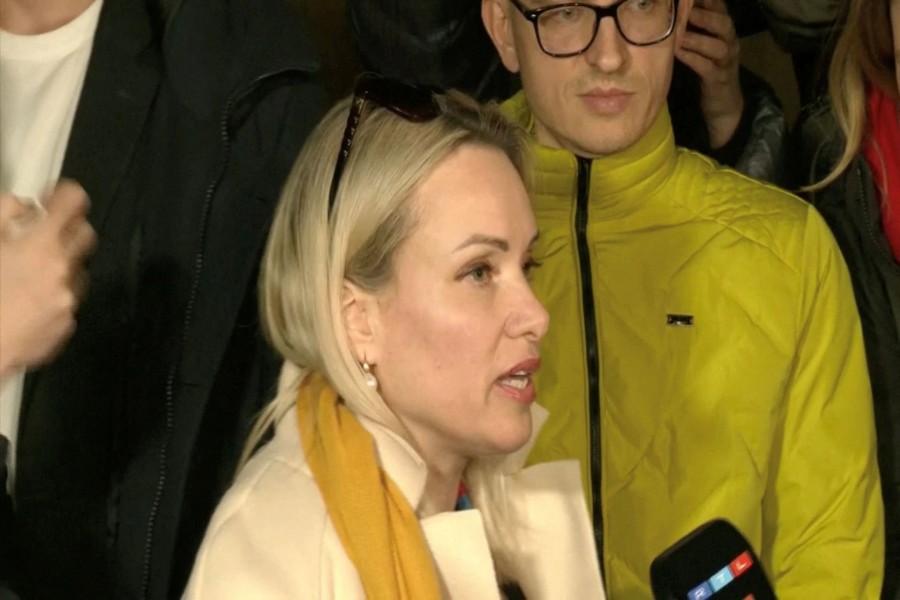A Russian woman who denounced the war in Ukraine during a live news bulletin on state television was fined 30,000 roubles ($280) on Tuesday, a court said, after the Kremlin denounced her act of protest as "hooliganism".
Marina Ovsyannikova, a Channel One employee, was found guilty of flouting protest laws, the court said. It was not immediately clear if she could also face other, more serious charges. Her lawyer was not immediately reachable for comment, reports Reuters.
Ovsyannikova staged an extraordinary show of dissent on Monday night when she held up an anti-war sign behind a studio presenter reading the news on Channel One and shouted slogans condemning Russia's Feb 24 invasion of Ukraine.
The sign, in English and Russian, read: "NO WAR. Stop the war. Don't believe propaganda. They are lying to you here."
State TV, which beams the Kremlin's narrative into homes across Russia's 11 time zones, portrays the invasion as a "special military operation", brushing over the humanitarian crisis, damage to cities and the mounting death toll.
Ovsyannikova exhorted Russians not to be taken in by state propaganda, a message that drew praise from Ukrainian President Volodymyr Zelenskiy but was swiftly rebuffed in Moscow.
"As far as this woman is concerned, this is hooliganism," said Kremlin spokesperson Dmitry Peskov. "The channel and those who are supposed to will get to the bottom of this," he told reporters, describing Channel One as a pillar of objective and timely news.
After the hearing, Ovsyannikova told reporters she was exhausted, had been questioned for more than 14 hours, had not been allowed to speak to her relatives and was not provided with legal assistance. She said she needed to rest before commenting further.
Her protest had stirred fears among her sympathisers that she could be prosecuted under new legislation that carries a jail term of up to 15 years.
The law adopted eight days after the invasion of Ukraine makes public actions aimed at discrediting Russia's army illegal and bans the spread of fake news or the "public dissemination of deliberately false information" about the use of Russia's armed forces.
Officials in Moscow describe Russia's offensive in Ukraine as a special military operation to disarm the country and prevent "genocide" against Russian-speakers, a justification dismissed by Ukraine and the West as a false pretext for an invasion of a democratic country.
In a video recorded before her protest, Ovsyannikova blamed Putin by name and said: "The next 10 generations of our descendants will not wash away the shame of this fratricidal war."
UN human rights spokesperson Ravina Shamdasani praised "this very courageous journalist".
"We would urge the authorities to ensure that she does not face any reprisals for exercising her right to freedom of expression," she told a news briefing in Geneva.
Almost 15,000 people have been detained across Russia during anti-war protests since Feb 24, according to a tally kept by OVD-Info, an independent protest-monitoring group.
Shamdasani said it was not clear how many of these remained in detention. "We do not have access to those who are detained, unfortunately," she said.


